Guide for Wisdom Tooth Removal (2020)
Do I need to remove my wisdom teeth? When should I remove them?

Wisdom Tooth Removal in Singapore
Lack of understanding about wisdom tooth surgery can result in unfounded concerns about the procedure.
From our experience as a dental clinic in Singapore, we know that patients typically have many questions about the extraction of these often-troublesome back teeth.
Here, we’ll tell you all you need to know about wisdom tooth surgery, including:
- Problems if wisdom teeth aren’t removed.
- The surgical procedure.
- Healing process
- Importance of wisdom teeth extraction sooner rather than later.
- Wisdom tooth extraction costs.
- Is it really necessary?
We’ll begin our comprehensive guide by answering one question asked by many of our patients who need wisdom tooth surgery in Singapore:
What Are Wisdom Teeth – And Why Do We Have Them?
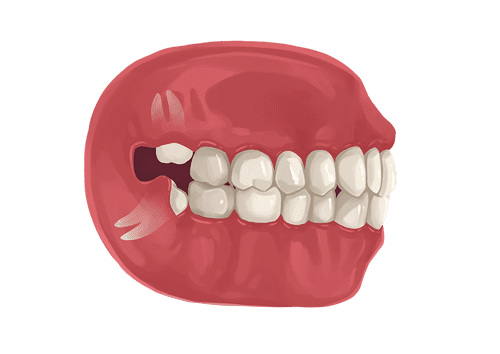
Third and Final Set of Molar Teeth
Wisdom teeth are the final (third) set of molars to develop, usually from the age of 17 to 25. Most adults have four wisdom teeth but some have fewer or, on rare occasions, more. Others don’t get wisdom teeth at all.
These molars can wreak all sorts of havoc in the deep recesses of our mouths, and the irony is that we don’t need them. Evolutionary biologists class wisdom teeth as vestigial organs – parts of the body, like the appendix, that serve no purpose.
So why do we still get wisdom teeth?
Anthropologists believe wisdom teeth developed to cope with the diet of our early ancestors – including raw meat and plant roots – which required a particularly strong bite force. Our modern diet renders wisdom teeth redundant but evolution is a slow process that hasn’t latched onto the idea that we no longer need these third molars.
At the same time, our jaws have become much smaller through evolution, and nine out of ten of the 65 per cent of people who have wisdom teeth don’t have enough room in their mouth for them.
Some experts reckon wisdom teeth could eventually disappear. Meanwhile, we have to deal with all the issues wisdom teeth can cause, and a major problem is that they can become impacted.
For people who have been living with missing teeth or badly-fitting dentures, a fixed tooth replacement can make a real difference.
Impacted Wisdom Teeth
Impaction occurs when wisdom teeth don’t have enough room to emerge or develop normally.
Impacted wisdom teeth can be painful and damage other teeth. They’re also difficult to clean, making them more vulnerable to decay and infection of surrounding gum tissue.
A wisdom tooth may never erupt through the gums (fully impacted) or be partially impacted, causing problems such as:
- Growing towards the rear of the mouth.
- Encroaching on the adjacent tooth (second molar).
- Remaining within the jaw at a right-angle to other teeth.
- Growing straight but staying trapped in the jaw.
Even if wisdom teeth erupt fully through the gum, they often emerge misaligned, damaging other teeth, jaw bone and nerves.
Symptoms of Impacted Wisdom Tooth
If a wisdom tooth is impacted, you may experience symptoms such as:
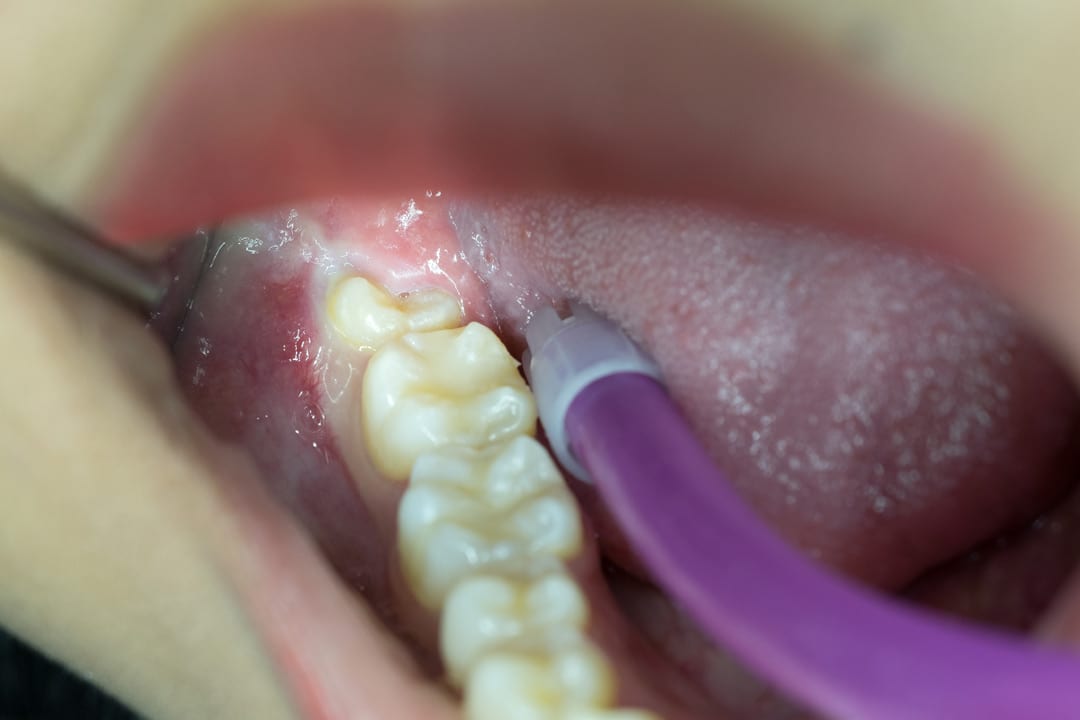
Bleeding Gums

Difficulty Opening Mouth

Bad Breath

Pain in Mouth & Gums

Jaw Swelling & Pain
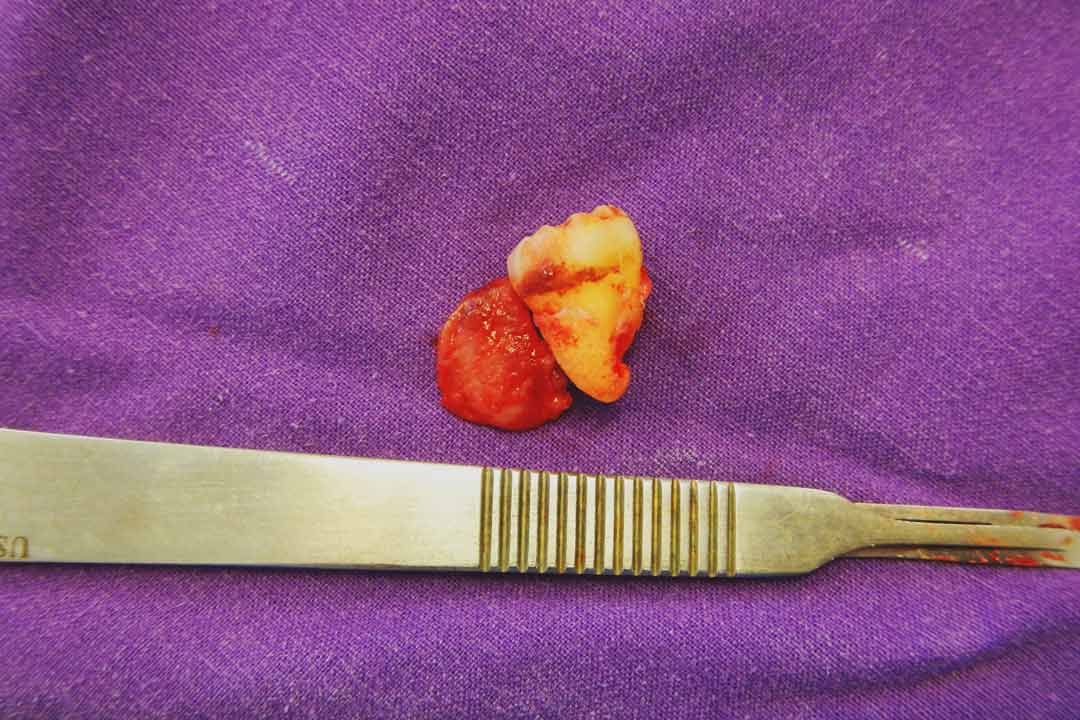
Formation of Oral Cysts
Complication of Impacted Wisdom Teeth
Impacted wisdom teeth can result in multiple complications, including:
- Cavities and gum infection – partially-impacted wisdom teeth are more difficult to clean, and food debris and bacteria and can easily get trapped between the tooth and gum.
- Sinus issues – roots of upper wisdom teeth can compress sinuses, causing inflammation, congestion and headaches.
- Damage to the adjacent second molar, increasing the risk of infection in the area.
- Cysts that can damage the jaw, nerves and teeth.
- Abscess – a build-up of pus in the wisdom tooth or surrounding tissue.
- Cellulitis – bacterial infection in the tongue, throat or cheek.
Problem wisdom teeth can also damage your general health – infection can spread to other areas of your body, including vital organs.
Diagnosing Wisdom Teeth Problems
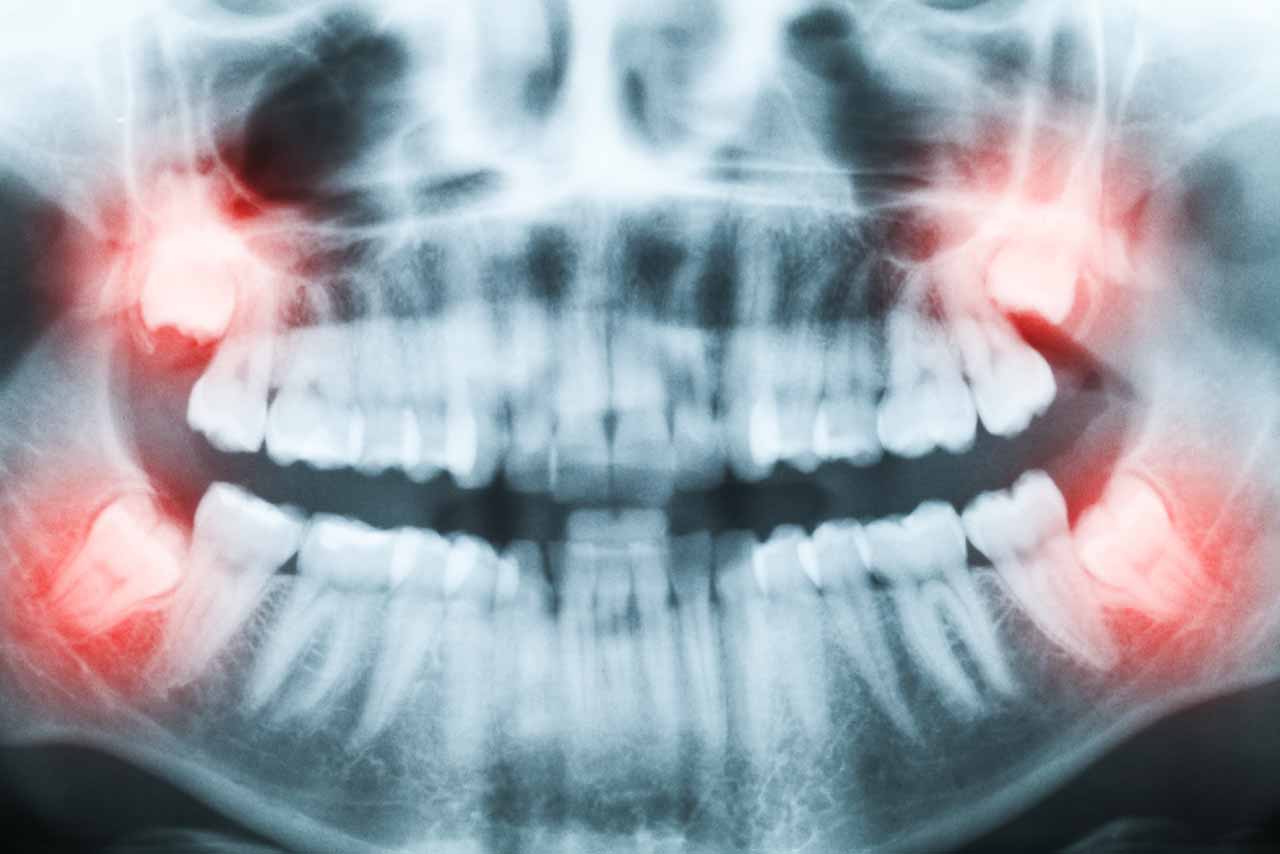
Do I Have an Impacted Wisdom Tooth?
Regular check-ups will enable your dentist to monitor the development and emergence of wisdom teeth, and X-rays can identify problems before they become apparent.
Your dentist can determine whether you have a problem such as an impacted wisdom tooth – or are likely to experience issues in the future – by:
- Asking questions about your general health and any dental symptoms.
- Examining your teeth and gums.
- Taking X-rays that can reveal impacted teeth and signs of damage to bone or teeth.
Wisdom Tooth Removal Explained
Surgical Extraction of Wisdom Teeth
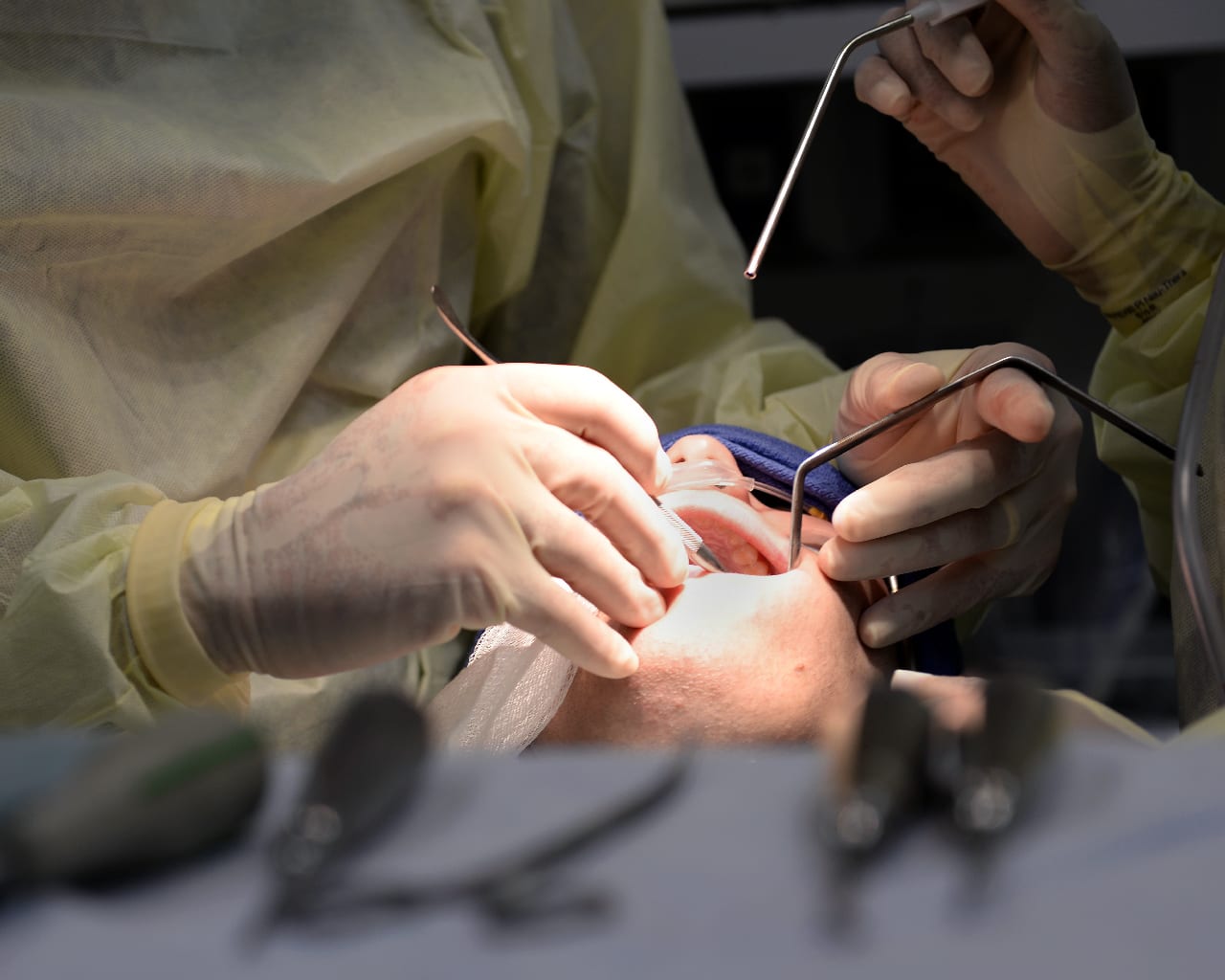
Surgical Extraction of Wisdom Teeth
The best way to avoid all the issues associated with wisdom teeth is extraction, even if the teeth don’t appear to be causing immediate problems.
There are two types of wisdom tooth removal – simple (non-surgical) extraction and surgical removal. Here, we’ll be focusing on the surgical method.
While a simple extraction may be used for upper wisdom teeth that have fully emerged, other cases may require one of the most complex, surgical extraction procedures when the tooth has become rooted in the bone and may need to be removed piece by piece.

The Surgical Procedure
Wisdom tooth surgery typically entails cutting into the gum and drilling out bone to facilitate extraction.
During the procedure, there will be the least possible disturbance to bone structure in order to optimise your long-term oral health.
Depending on the intricacies of the surgery, you’ll be given a local anaesthetic, sedation or general anaesthesia.
Your dentist or oral surgeon will then:
- Make a cut in the gum to expose the tooth and bone
- Remove bone obstruction to the tooth root.
- Extract the tooth – one piece at a time if necessary.
- Clean any debris from the tooth or bone.
- Replace tissue and stitch the extraction site – a dressing may be applied to control bleeding.
You may also be prescribed medication to control post-surgery discomfort.
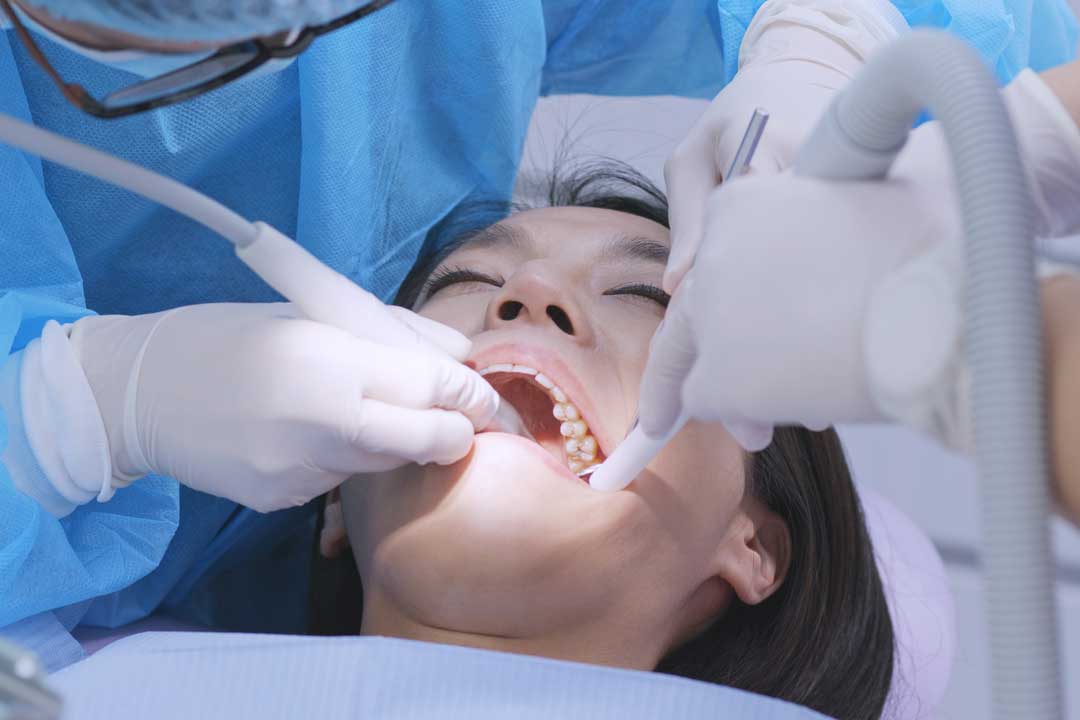
After your wisdom tooth surgery
You might not need a follow-up appointment after wisdom tooth surgery if:
- You had dissolvable stitches
- No complications arose during the procedure
- You don’t experience persistent problems such as swelling, pain, bleeding or numbness.
If complications do develop, contact your dentist or oral surgeon to discuss treatment options.
Are There Any Risks with Wisdom Tooth Surgery?
All surgical procedures carry the risk of infection, which you can help to avoid after wisdom tooth surgery by following the instructions of your dentist or oral surgeon.
The surgical extraction of wisdom teeth is regarded as a safe procedure and is routinely performed by dentists and oral surgeons, without any complications.
How You Can Help the Healing Process
Listen To Your Dentist’s Instructions
Initial healing after wisdom tooth surgery takes up to two weeks, but it can take three to six months for the soft tissue and bone to fully heal.
To aid the healing process after wisdom tooth surgery, it’s important to follow your dentist or oral surgeon’s instructions, which usually cover:
- Blood may ooze for a day after the procedure. Avoid excessive spitting, which can dislodge the blood clot. Replace any dressing as directed.
- Any swelling of the cheeks usually subsides after two or three days. Meanwhile, you may find an ice pack helpful.
- Rest for the remainder of the day after your surgery. Avoid strenuous activity for at least a week – it might result in the blood clot working loose from the socket.
- Avoid hard, chewy, hot or spicy foods for the first 24 hours – they can irritate the wound or get stuck in the socket.
- Drink lots of water after the surgery. Avoid caffiene, alcohol and carbonated or hot drinks for the first 24 hours. Don’t use a straw for at least a week – the sucking action can dislodge the blood clot.
- Oral hygiene. Don’t brush your teeth or rinse your mouth during the first 24 hours after surgery. Afterwards, take extra care when brushing near the surgical wound and for a week rinse your mouth gently with warm salt water every two hours and after meals.
- If you smoke, don’t do so for at least three days after surgery – it can delay healing and increase the risk of complications.

Pain Relief
Post-surgery discomfort can be managed with over-the-counter or prescription medication. Prescription medication may be more helpful if bone has been removed during the procedure. Holding a cold pack against your jaw can also ease pain.
Benefits of Early Wisdom Tooth Extraction
Early Removal Reduces Risk of Potential Complications
Dentists and oral surgeons extract wisdom teeth either as a preventive measure to avoid future issues or to correct problems that have already developed.
In many cases, it’s better to have wisdom teeth extracted as soon as possible – complications arising from wisdom teeth can sometimes become an emergency situation.
Dentists usually recommend wisdom tooth removal from the ages of 18 to 24, when only about two-thirds of the root has formed. If the tooth is more developed, it can be harder to manipulate during surgery. Early extraction also avoids damage to nearby teeth – the second molars.
Wisdom teeth extraction later on increases the difficulty of the procedure, with potential complications such as nerve damage. As you get older, it also takes longer to recover from wisdom teeth surgery.

Prevention of Pericoronitis
Another reason for timely removal of wisdom teeth is that they can result in a painful condition called pericoronitis – inflammation of the soft tissue around the crown of a tooth that’s partially erupted.
Pericoronitis occurs more often with wisdom teeth than with other molars.
How Much Does Wisdom Tooth Extraction in Singapore Cost?
The cost of wisdom teeth removal depends largely on the complexity of the procedure.
The cost of wisdom tooth removals typically ranges between:
- Non-surgical wisdom tooth extraction costs from $150 to $350.
- Wisdom tooth surgery costs from between $950 to $1,250. MediSave can be used to pay for surgical wisdom tooth extraction – up to $950 a tooth.
Many people needing wisdom tooth extraction in Singapore are willing to pay the extra cost for private treatment because you get a faster, more personalised service.

Why You’re Better Off Without Wisdom Teeth
We hope this comprehensive guide to wisdom tooth surgery in Singapore has given you an insight into the procedure itself and its costs and benefits.
While serving no function, wisdom teeth can cause ongoing dental issues and problems that affect your overall health. That’s why you’re better off without them.
Although some patients may only deem the removal of wisdom teeth as necessary when they become impacted, Many dentists and oral surgeons agree that extraction of impacted wisdom teeth that are not causing any apparent problems can prevent gum disease, tooth decay and infection.
If you’re considering wisdom tooth extraction, NoFrills Dental can advise you whether you need a simple extraction or surgery.
References
- (COVID-19), C., Health, E., Disease, H., Disease, L., Management, P., Conditions, S., Problems, S., Disorders, S., Checker, S., Blogs, W., Answers, Q., Guide, I., Doctor, F., A-Z, C., A-Z, S., Medications, M., Identifier, P., Interactions, C., Drugs, C., Pregnant, T., Management, D., Obesity, W., Recipes, F., Exercise, F., Beauty, H., Balance, H., Relationships, S., Care, O., Health, W., Health, M., Well, A., Sleep, H., Teens, H., Pregnant, G., Trimester, F., Trimester, S., Trimester, T., Baby, N., Health, C., Vaccines, C., Kids, R., Cats, H., Dogs, H., Here, G., Now, C., Experts, C., Surfaces?, H., Social Distancing, Q. E., Blogs, W., Center, N. and Care, O.
(COVID-19), Coronavirus et al. “What Is Pericoronitis?”. Webmd, 2020, https://www.webmd.com/oral-health/guide/pericoronitis. Accessed 5 Nov 2020.
So, What’s Next?
Want to get your wisdom teeth removed?
If you’re looking to get your wisdom teeth removed, you should contact a reputable dental clinic to schedule a consultation with an experienced dentist to better understand your situation. To find out more about your options, contact us via our support hotline at 9007 1085 or email us at enquiry@nofrillsdental.com or message us directly to get in touch with our dentists.
We would suggest for you to speak to one of our dentists. Our dental providers are experienced, ready to answer all your queries, and will discuss all the possible treatment options available for you.
At the end of the day, we believe that the right dentist for you is the one who will lay out all your treatment options on the table, allowing you to make informed decisions, while ensuring that your entire treatment process is as enjoyable, comfortable and hassle-free as possible. Good communication between you and your dentist is the best way to ensure a smooth and successful treatment.
In addition, please only proceed with the treatment if you are fully comfortable with the treatment plan proposed by your provider.
Talk to Us Today!
Related Posts
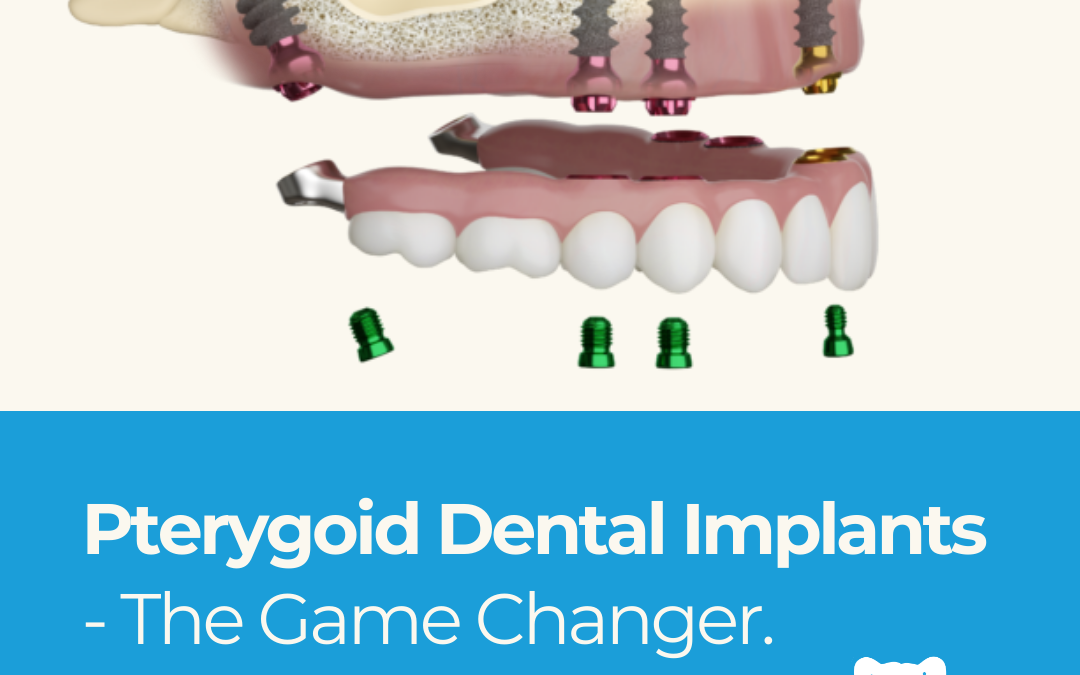
Pterygoid Dental Implants: An In-depth Guide
Dental implants have revolutionized the world of dentistry, offering solutions for patients with missing teeth. Tubero Pterygoid Dental Implants stand out due to their unique placement and advantages.
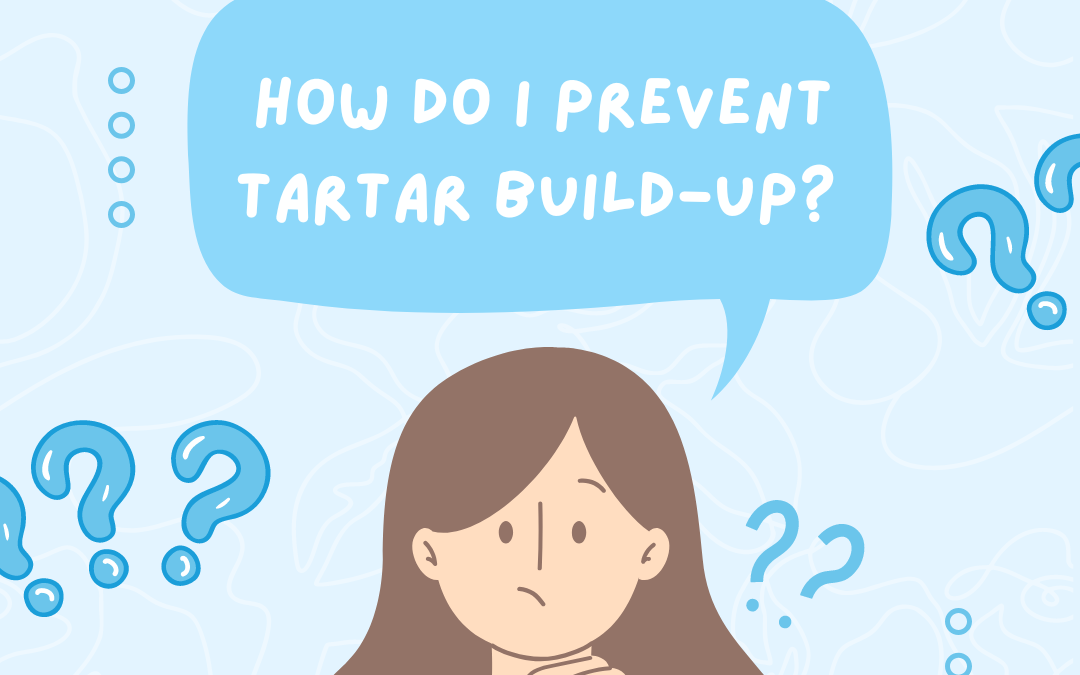
How do I prevent tartar build-up?
Tartar also known as dental calculus, develops from plaque which contains millions of bacteria that feeds on carbohydrates – sugars and starches, in the food and drinks we consume.
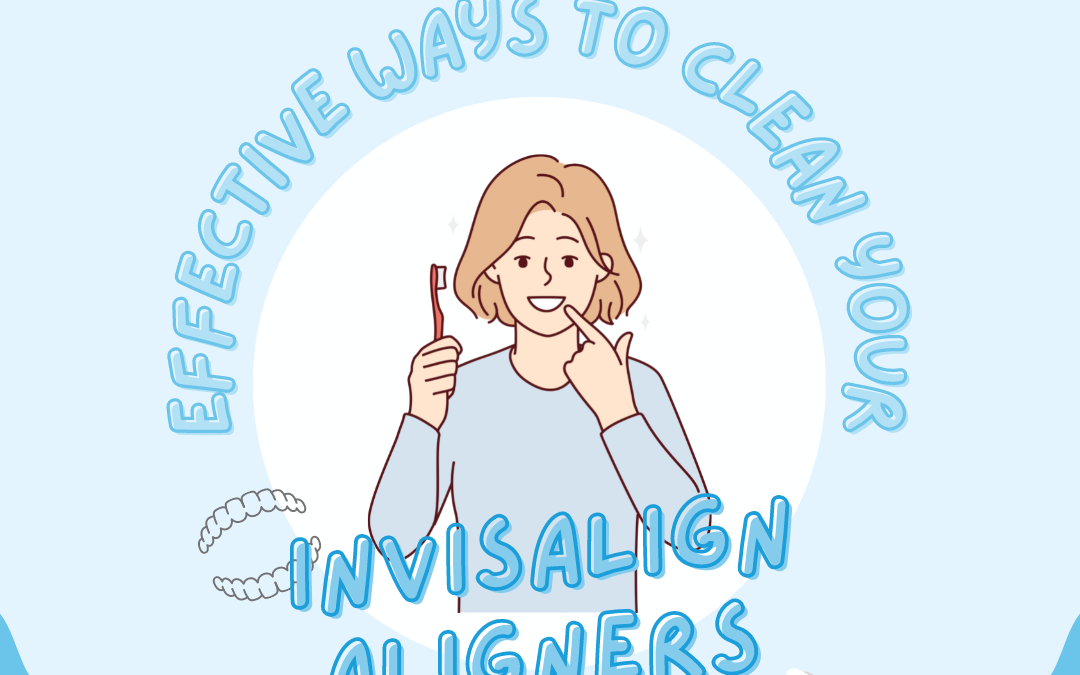
Effective ways to clean your Invisalign Aligners
The advanced technology of Invisalign aligners has made them a hugely popular alternative to braces for straightening teeth, among teens and adults alike.
These clear plastic appliances are more comfortable and virtually unnoticeable in the mouth, and have the further advantage of removability for brushing and flossing and meals and snacks. And they can fix less complex orthodontic problems up to twice as fast as braces.